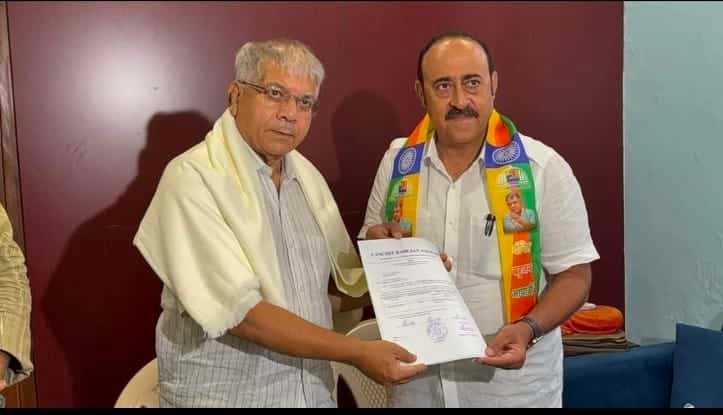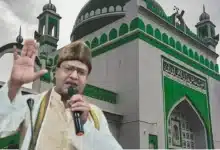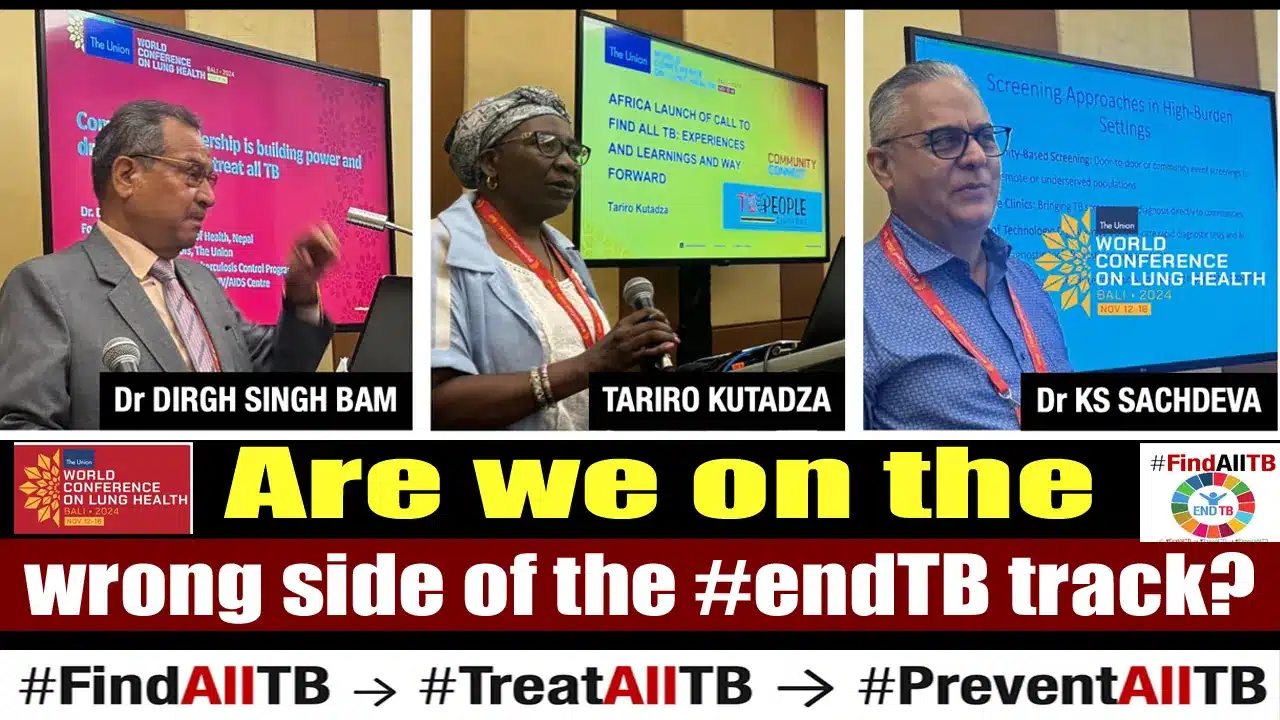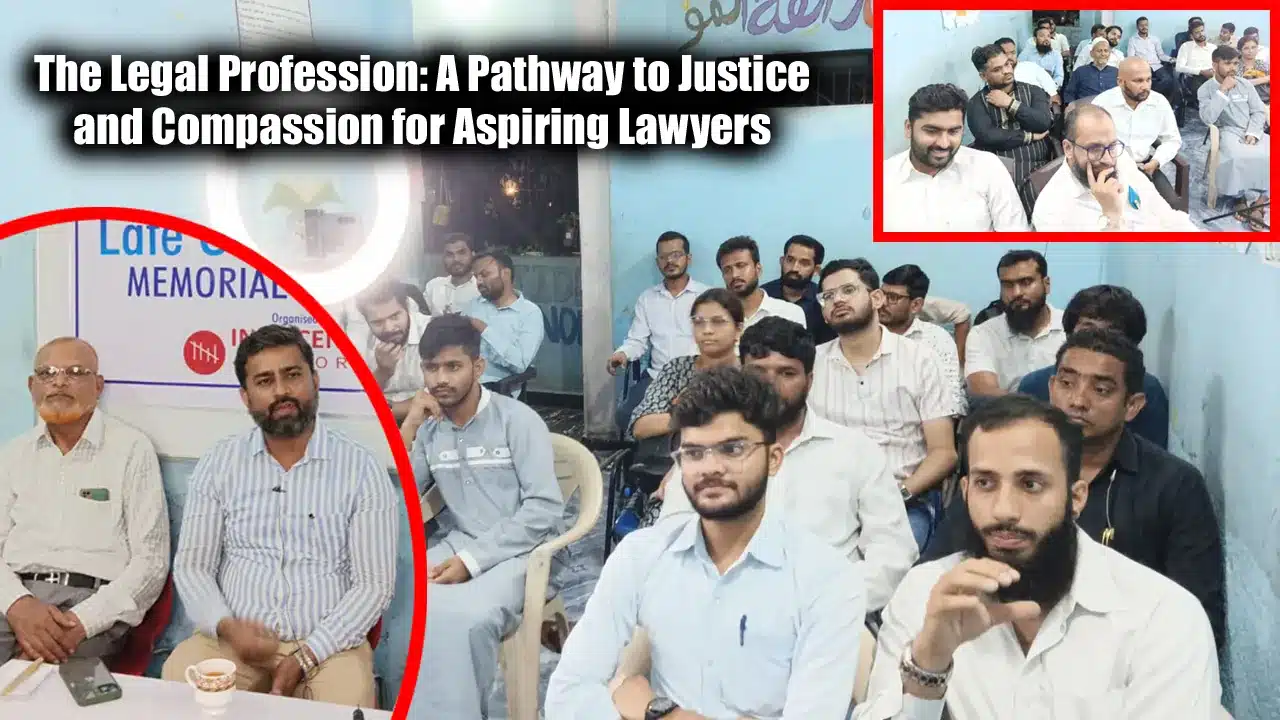The Unfulfilled Legacy of Former Minister Anees Ahmed: A Reflection on Political Impact and Missed Opportunities in the Muslim Community

Congress leader Anees Ahmed, who once served as a minister, is a friend to many of us. However, after being denied a Congress ticket, he has joined the Vanchit Bahujan Aghadi and is now contesting elections. His traditional seat, Mid Nagpur, was a Muslim-majority constituency, but before his last defeat, he himself switched constituencies, only to lose again. At that time, the residents of Mominpura were disappointed with him because he didn’t trust the people who had consistently supported him.
India’s Freedom Struggle: A Legacy of Unity Against Rising Hate and Divisive Politics
To view Anees Ahmed, who was both a minister and a cabinet minister, merely as a “Muslim face” is naive, as he has spent his entire political career trying to present himself as secular, focusing more on gaining the trust of non-Muslim voters. We’re discussing this not from a political perspective but as social activists and rational thinkers. We connected with Anees Ahmed through the Maulana Azad Economic Development Board, where we met with him on numerous occasions. However, he couldn’t fulfill the active role we expected from him in the movement and its development. At that time, he was the cabinet minister for technical and higher education, but the state of Muslim education in Nagpur’s six districts was poor then, and it remains poor today. The economic and social conditions of Muslims in these districts remain unchanged.
Look at someone like Ramdas Athawale, the Minister for Social Welfare. Once he assumed office, he successfully mobilized a strong network of Dalit supporters, channeling social welfare colleges, Dalit welfare programs, hostels, and other initiatives in every district to economically strengthen his Dalit followers. He also supported social organizations, offering them political and financial backing, which allowed him to stay influential even when he was not elected directly. Today, Athawale’s network ensures his continued political relevance, backed by a solid base of followers.
“Empowering girls and Women’s HIV Prevention Choices: Bridging the Gap for Greater Access”
Anees Ahmed has been elected twice as MLA and served as a cabinet minister. So, why didn’t he create a similar network? If he had established even 10 to 15 colleges across each district — something within his power as a minister — he would have become a trusted leader among the Muslims of Vidarbha. His presence would have commanded hundreds of supporters. However, he owns private colleges, but his influence doesn’t extend far enough to gather thousands of activists if he calls. Sadly, many Muslim leaders from Mumbai are unaware that 78% of the Muslim population resides outside of Mumbai. These leaders are often regarded as “Muslim representatives,” yet they dismiss rural and Marathi-speaking Muslims as lower-status Muslims, an attitude we experienced during our two and a half years in Mumbai.
When the Sachar Report was released in 2006, we launched a strong movement in Vidarbha to implement its recommendations. At that time, Hussain Dalwai Sahib organized a program at Nagpur’s Kamgar Bhawan under the Maulana Azad Vichar Manch, where both Anees Bhai and I were guests on stage. Unfortunately, this program didn’t continue, reportedly due to lack of support from his party. We persisted with this movement for four years without significant financial aid. Had Anees Ahmed supported the movement at that time, he could have gained considerable influence, similar to how we elevated Pasha Patel from Latur to prominence through this movement. In 1990, we laid the foundation for the OBC movement at a conference in Mominpura, but the opportunity to develop this cause further was missed.
Who is Gigi Hadid? A Comprehensive Biography
In Pandharkawada, we organized a significant gathering, inaugurated by Minister Anees Ahmed, to discuss the socio-economic, educational, and political needs of Muslims, along with potential solutions. We suggested that if a Muslim leader from Vidarbha joined this grassroots movement, it could create substantial impact. Yet, Anees Ahmed didn’t give it the needed attention.
Now, he has left Congress. He has colleges, influence, and reputation, but lacks a mass base. While the Vanchit Bahujan Aghadi needed him, it appears that he needed them less. A pressing question remains: will political Muslim leaders ever connect with the movements advocating for fundamental rights within their community? Or will they remain loyal to their parties, only returning to their communities when the parties no longer need them?
Even today, the Muslim community, which continues to struggle for issues like reservation, the Atrocity Act, educational resources, and fundamental rights, needs leaders who stand with them. Elections come and go, but community-rooted politics endures.
Anees Ahmed will always remain a friend, Inshallah. If he decides to connect deeply with the Muslim community in the six districts of Nagpur province, he has all it takes to emerge as a formidable leader.
– Prof. Javed Pasha
President, Indian Muslim Council
Nagpur






SLOT RAFFI AHMAD dan 3, dengan Bonus Event Scatter Hitam yang Sangat Populer di Indonesia. LINK DAFTAR
Sumber terpercaya untuk menemukan link slot Mahjong Wins 3 Scatter Hitam yang paling gacor hari ini
Situs slot server luar negri terbaik bonus 100% diawal.
Ümraniye süpürge servisi randevu Fiyatları makul ve kaliteli hizmet sunuyorlar. https://mediasafar.com/read-blog/1318
great articleslot mahjong Terpercaya
süpürge tamir ve bakım Ümraniye Orijinal parça kullanmaları güven verdi. https://youslade.com/read-blog/33605
Ümraniye süpürge servisi nasıl Evime kadar gelip cihazı aldılar, çok memnun kaldım. http://castingpal.com/read-blog/5192
great articlemonperatoto Terpercaya
great articlehttps://sasikap.bandungkab.go.id/assets/ Terpercaya